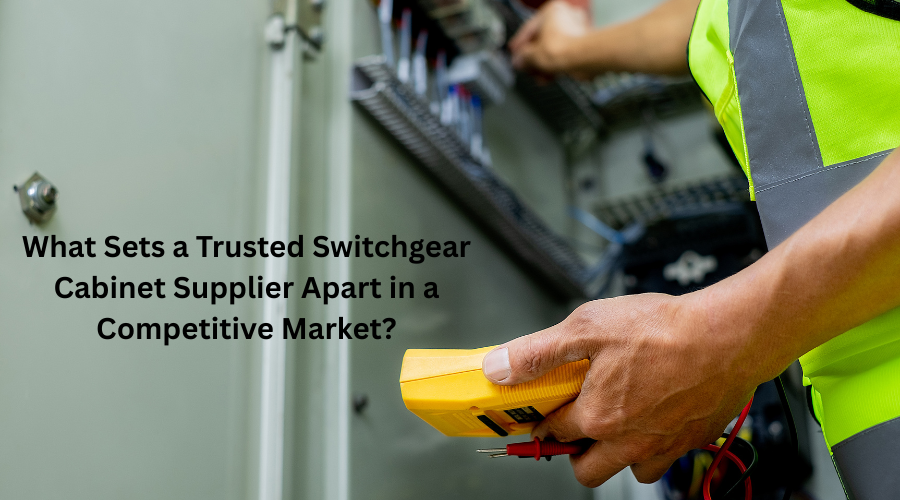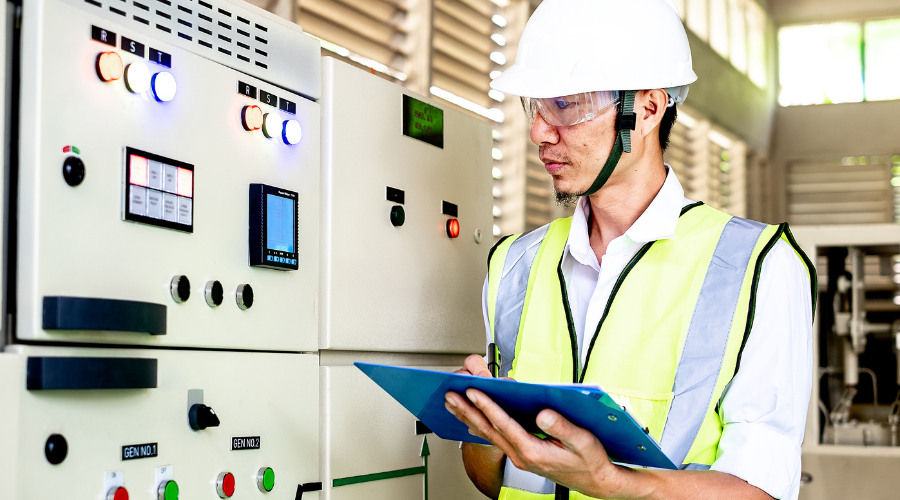What Sets a Trusted Switchgear Cabinet Supplier Apart in a Competitive Market?
- dsjenergyl
- Jul 30
- 4 min read

In today's rapidly evolving industrial and energy sectors, finding the right switchgear cabinet supplier can make all the difference between successful execution and costly delays. With rising demand and intense competition, suppliers are plentiful—but not all are created equal. So, what truly sets a trusted supplier apart from the rest in such a crowded market?
Let's dive into the qualities, capabilities, and customer-centric traits that define a reliable switchgear cabinet partner—and how you can identify them for your next project.
1. Proven Experience and Industry Knowledge
The foundation of trust often begins with industry experience. A supplier who has been operating for 10+ years or more will likely have a deeper understanding of:
Power distribution requirements
Regional and international safety standards
Product customization needs
Challenges faced in real-world applications
They're more likely to anticipate problems before they arise and suggest solutions that save time and money.
Why it matters: Experienced suppliers don't just sell products—they provide guidance. Their knowledge can help you avoid technical pitfalls, select the right configurations, and future-proof your systems.
2. Compliance with International Standards
In the electrical equipment market, compliance isn't optional—it's non-negotiable.
A trusted supplier ensures all their switchgear cabinets meet recognized global safety and performance standards such as:
IEC (International Electrotechnical Commission)
ANSI (American National Standards Institute)
NEMA (National Electrical Manufacturers Association)
This kind of compliance guarantees product safety, durability, and compatibility—especially in critical infrastructure like data centers, substations, and industrial facilities.
Pro tip: Always ask for product certifications or third-party test results to validate compliance.

3. Custom Engineering Capabilities
Not all projects fit into a standard solution. The best suppliers offer tailor-made switchgear cabinets that align perfectly with your:
Load requirements
Environmental conditions
Installation constraints
Future scalability plans
This flexibility is vital in industries such as oil & gas, renewable energy, and manufacturing, where space-saving, heat resistance, or IP-rated enclosures may be required.
A trusted supplier will have in-house engineers who can adapt designs and even help with integration planning.
4. High-Quality Materials and Workmanship
What's inside a cabinet matters—but so does the build.
A dependable supplier focuses on durability, precision, and protection. Look for cabinets made from:
Powder-coated steel or stainless steel (for corrosion resistance)
Weatherproof seals (especially for outdoor use)
Robust locking systems and cable management features
And beyond materials, check for signs of good workmanship—clean welds, solid hinges, smooth panel edges, and secure insulation.
Bottom line: Great suppliers don't cut corners—they build switchgear cabinets to last decades, not just years.
5. End-to-End Support Services
Trusted suppliers go beyond just selling a product. They offer comprehensive customer service that starts before the sale and continues long after.
These services include:
Pre-sale consultations
CAD drawings and 3D models
Installation guidance
Maintenance support
After-sales troubleshooting
Having this kind of backup ensures you're never left alone if technical issues arise during installation or operation.
Tip: A supplier's response time to inquiries or support tickets says a lot about their reliability.
6. On-Time Delivery and Strong Logistics
Time is money—especially in infrastructure projects where delays can derail budgets and timelines.
An exceptional supplier has:
Optimized supply chain networks
Transparent lead times
Clear tracking and communication during delivery
They also proactively handle customs documentation, certifications, and packaging for international shipments, which is vital if you're sourcing from overseas.
7. Client References and Case Studies
What do other clients say?
A reputable supplier isn't shy about sharing:
Client testimonials
Case studies
Photos of previous projects
List of industries served
These references demonstrate their ability to handle diverse needs and high-profile projects. If a supplier can show successful installations in hospitals, airports, or renewable plants, it's a major vote of confidence.
8. Innovation and Smart Technology Integration
The electrical industry is advancing rapidly. A forward-thinking supplier should be investing in:
Smart switchgear systems
IoT-enabled monitoring
Modular cabinet designs
Digital twin modeling
Suppliers who embrace innovation offer long-term value by helping clients prepare for smart grids, remote diagnostics, and predictive maintenance.
Future-readiness is no longer optional—it's a must.
9. Transparent Pricing and Flexible Terms
No one likes surprises—especially when it comes to pricing.
A reliable supplier will:
Clearly break down all costs
Explain optional upgrades or accessories
Offer flexible payment terms
Avoid hidden fees
This kind of transparency establishes credibility and enables better project planning.
10. Global Reach with Local Expertise
If you're working across borders, it helps to choose a supplier with:
Global logistics capabilities
Local partners or distributors
Multilingual support teams
This ensures you get a quick local response while still benefiting from the technical depth of a global provider.
Conclusion
In a market full of options, identifying a trusted supplier comes down to more than price or proximity. It's about proven experience, engineering excellence, regulatory compliance, and a commitment to long-term support.
When you partner with a supplier who ticks all these boxes, you're not just buying equipment—you're investing in reliability, safety, and peace of mind.
So, the next time you evaluate potential suppliers, don't just ask "How much?" Ask "How capable?" The answer to that question will determine the true value of your switchgear investment.
FAQs
Q1: What is the function of a switchgear cabinet?
A switchgear cabinet houses electrical components like circuit breakers, fuses, and relays. It ensures safe power distribution, protects electrical systems from faults, and isolates equipment for maintenance.
Q2: How do I verify if a supplier of switchgear cabinets is certified?
Request certifications such as ISO, IEC, or NEMA. You can also ask for third-party inspection reports or quality management documentation.
Q3: Are custom switchgear cabinets more expensive?
Not always. While customization may increase upfront cost, it often reduces long-term maintenance, improves safety, and enhances operational efficiency—making it a smart investment.
Q4: How long do switchgear cabinets last?
With proper installation and maintenance, high-quality switchgear cabinets can last 15–30 years, depending on environmental and operational factors.
Q5: What are the signs of a poor-quality supplier?
Red flags include vague pricing, no compliance documentation, slow communication, and limited technical support.







Comments